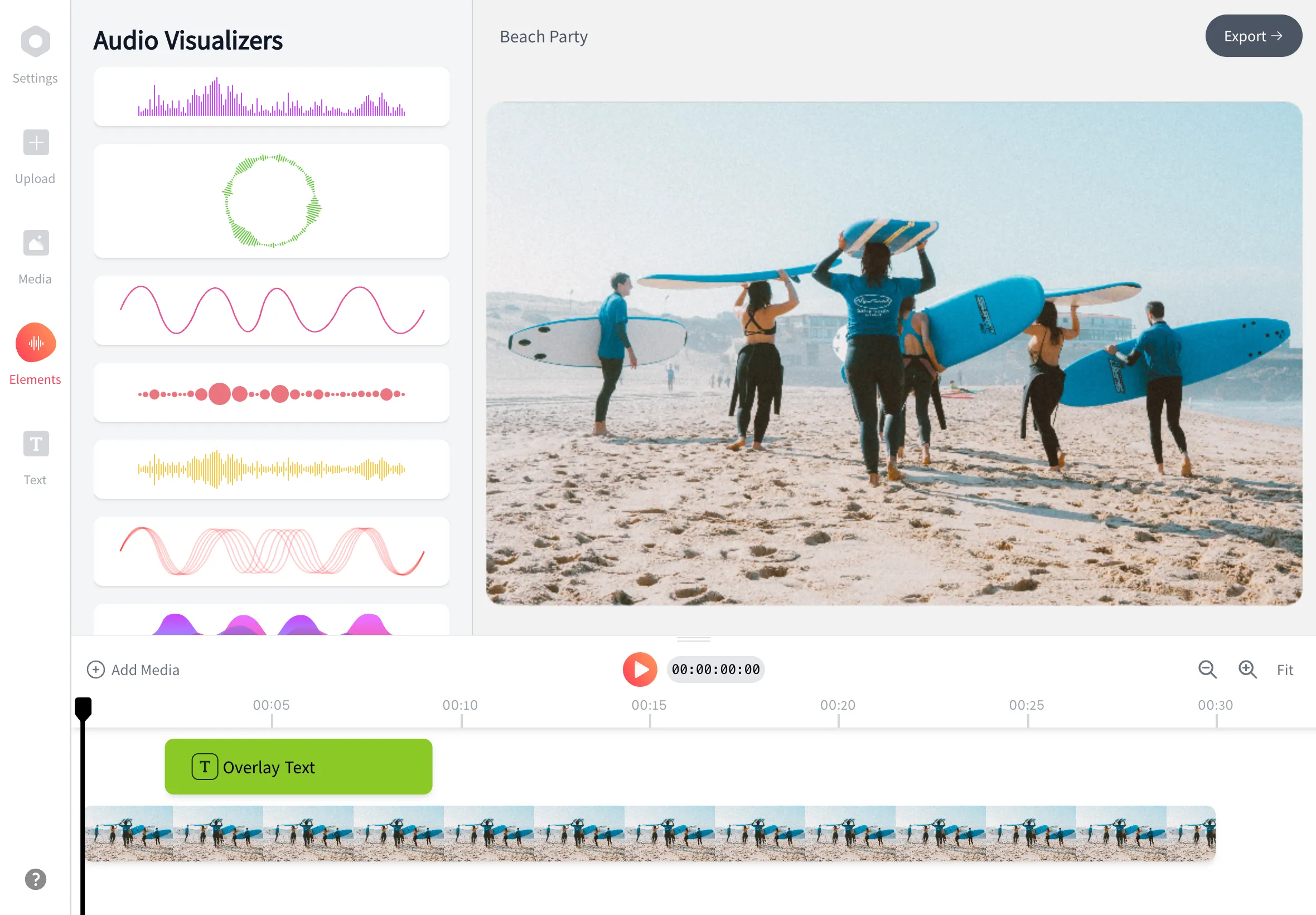How to Choose Your First Podcast Topic
Whether you want to make money, grow a business, or simply share your knowledge, posting new podcast topics regularly is an excellent way to gain followers.
Currently, there are around 1 million active podcasts on the web. Over 55% of the U.S. population is familiar with podcasting , which means there is a growing market for what you have to offer.
If you are yet to tap this space, it is crucial to get your first podcast topic right. There is one step to conquer before you do that: determining the topic for the overall content.
1. Determine your goal
Once you decide the central theme of your show, you can structure each podcast episode around it. This theme could be anything from creative writing tips, movie reviews, or DIY projects around the home.
The following steps can help you zero in on the overall topic:
- Think about your business objectives
- Weigh your interests, passions, and skills
- Decide how to align the subject matter with your aims
- Determine ways to present your ideas uniquely
- Understand the pulse of the market
Depending on your goals, decide if you want to make money with podcasts by boosting sales or impart knowledge to your target group. Make the episodes helpful, engaging, and vibrant so that people can identify with their situations.
2. Identify your passions
One popular rule of marketing that has much acceptance is that you should give the audience what they want. The safest way to do this may be to pick a topic that is not that well-covered by other content creators.
So, your first podcast topic and the subsequent ones may mirror people’s interest, but where does your passion lie? If you are doling out podcast after podcast on something you don’t care about, you will face burnout in no time.
The brand sentiment, conversions, and site traffic are good things. However, the main topic should evoke your interest and help you research, plan, create, and put out the right content. If not, you may end up abandoning the whole project, which happened to many podcasters.
3. Think about the topic’s relevance
Consider this - your first podcast topic has gone viral with numerous shares and has brought you many subscribers; yet, your business does not see increased sales. It may be because the post is in no way related to what you are selling. Or, the relevance may be lost on your listeners.
Hence, you should make podcasts that are:
(a) related to your business and
(b) attractive to the audience
For instance, you may be advising about saving money on shopping. Create heartwarming characters or share anecdotes about your past experiences. Or you have a dental practice. In your new podcast topic, you may give timely prevention tips for common oral ailments in various age groups.
4. Update yourself
Likewise, you may be interested in an area and are passionate about it. You can keep podcasting even when nobody’s listening. But if you don’t bring something new to the table or put a spin on the topics, your audience may get bored.
In the above examples, the dentist can keep tabs on the latest happenings in oral health technology and include the information in the new podcast topic. So, they hear it from you before anyone else. Gaining expertise and skill in your area of interest keeps you one step ahead of your competitors and followers.
5. Create audience personas
Prevent any misalignment between the content you produce and what the target audience wants. Not everyone comes from the same living situations or holds the same job timings.
For instance, a dietician can create episodes for teenagers, seniors, new mothers, people struggling with medical conditions like obesity, diabetes, or PCOS. You can further narrow this by segmenting them into various groups.
Create content for, say, “high protein diet for breastfeeding working moms,” “high protein diet for muscle gain after 60,” or “high protein vegan diet for weight loss.”
6. Keep them hooked
Choosing a new podcast topic can be difficult, especially if you are only starting out. Whether you like engineering topics or want to start an interview podcast , there may be millions of episodes already on the subject. But you can still make your content unique by finding the differentiator that sets you apart.
Your first podcast topic should give a little teaser about what your series will offer the audience. Doing this will set the expectations in listeners and provide them with an idea of how long an episode is going to be and what a particular season entails. It brings you to the next step: the flow of the episodes.
7. Plan the entire season
While individual podcast episodes make up the entire show, there should be some connectivity among what you publish. Every new podcast topic has to be an extension of the last one or seamlessly flow from the previous segment.
For instance, one of your podcast seasons is based on high-protein diet recipes you can make in under 30 minutes. Plan the episodes to include meals for various times of the day - breakfast, lunch, snacks, dinner, etc. Or how you can make the meal preparations for the whole week.
Do not go into where to purchase the best ingredients or whether organic, pastured, or free-range eggs contain the highest amounts of protein. Save it for the upcoming series.
8. Diversify after a couple of seasons
Once you have garnered a strong following, you can start to go broad. Keep the central theme of your podcast the same, but it is time to expand the target base after two or three years. Branch out into various topics related to the core content and create podcasts for more listener groups. For instance, a diet podcaster can go into sports nutrition, weight management, product reviews, etc.
Planning the flow helps you achieve the purpose by making the episodes listener-friendly. Like many things in life, you excel at podcasting through trial and error. So, don’t wait for the perfect first podcast topic. Pick a subject or area you are passionate about and start publishing.
Leverage EchoWave for your first podcast topic
The podcast industry is diverse and ever-growing. And video can achieve ten times more audience engagement. If you have sound files that you would like to share on various platforms, EchoWave is an easy way to convert your podcasts to videos .
Repurpose your existing audio content in the visual format and expand your reach. Share your podcasts on YouTube and other social networks today!
Ready to get started? We have a free plan!
No credit card required, our free plan includes a small Echowave.io watermark.
Get Started →







